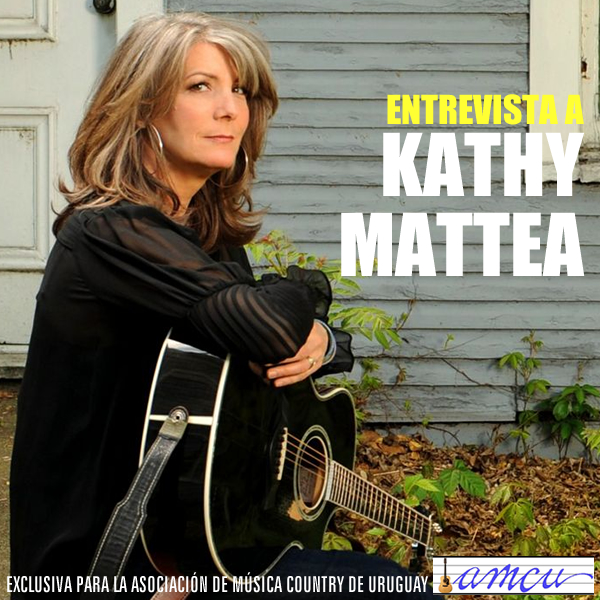
Entrevista a gigantes del country
 |
Datos
biográficos
Entrevista a Kathy Mattea (traducción)
Links
Entrevista a Kathy Mattea (original en inglés)
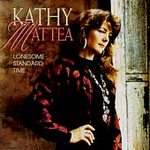 Breves
datos biográficos.
Breves
datos biográficos.
Kathy Mattea nació en Cross Lane, West Virginia, el 21 de junio de 1959.
En la escuela secundaria comenzó a tomar clases de canto y guitarra y
descubrió la música folk en 1976, uniéndose a la banda
Pennsboro, para luego dejar los estudios y dirigir su rumbo hacia Nashville,
Tennessee. Allí fue camarera mientras trabajaba perfeccionándose
como compositora,y también trabajó como guía en el Salón
de la Fama y Museo de la Música Country (Country Music Hall of Fame and
Museum) y en 1983 logró un contrato con Mercury Records, lanzando al
mercado el album "From the Heart" en 1984. Fue en 1986 con
"Walk the Way the Wind Blows" que logró un gran éxito,
seguido de "Love at the Five and Dime","Goin' Gone",
"Eighteen Wheels and a Dozen Roses", "Burnin' Old Memories"
y "She Came From Fort Worth" entre tantos otros.
Durante la década de los 90 viajó a Escocia para estudiar la conexión
entre el género country y el sonido escocés, grabando con el grupo
The Roches y con el cantante y compositor Dougie MacLean.
En los años 1989 y 1990 ganó el premio a Mejor Vocalista Femenina,
otorgado por la Country Music
Association de Estados Unidos, habiendo ganado un Grammy por Mejor Cantante
Country Femenina por el tema "Where You've Been" en 1990 y otro por
Mejor Album Gospel Bluegrass por "Good News" en 1993.
Entrevista
a Kathy Mattea.
1- AMCU - ¿Llegó a ver a algunos de sus ídolos
cuando trabajaba como guía en el Salón
de la Fama y Museo de la Música Country? ¿Recibió algún
consejo en esa época?
Kathy Mattea - Bueno, le di a Ralph Emery (*) un recorrido de VIP una vez. Fue muy intimidante, porque yo sabía que él sabía más sobre toda esa gente y todo ese material que lo que yo sabía!. Todos los demás guías tenían miedo de llevarlo de recorrida, pero yo pensé "¡Qué demonios!". Él fue grandioso. Y llegué a contarle esa historia a él años más tarde.
Mi otro gran recuerdo
es cuando estaban haciendo "La Hija del Minero" (Coal Miner's
Daughter) la película ganadora del Oscar sobre Loretta Lynn, y Beverly
D'Angelo llegó estudiando para interpretar a Patsy Cline. Ese fue un
día emocionante. Fui al centro de la ciudad a ser extra en el público
para la escena del gran concierto, así que fue realmente muy divertido.
(*) Nota de AMCU: Ralph Emery es uno de los periodistas
especializados en el género country de más larga trayectoria y
gran reputación en Estados Unidos. Su autobiografía, "Memories",
estuvo al tope de las listas de Best Sellers en 1991 y 1992.
2 - AMCU
- Usted siempre ha extendido los límites de su música, incluyendo
folk, elementos de música clásica y escocesa, obviamente extrayendo
inspiración de muchas fuentes. ¿Qué otros estilos musicales
disfruta escuchar, aparte de material de orientación country?
Kathy Mattea -Siempre encuentro algo para gustar en todos los
géneros. Ahora tengo en mi ipod de todo desde viejo material de los Rolling
Stones hasta Diana Krall, algún material escocés en galés,
algo de blues. Tiene más que ver con una conexión conmigo. No
tengo mucho hip-hop, pero recuerdo escuchar a los Blackeyed Peas cantando "Where
is the Love" en los Grammy algunos años atrás, y fui
y lo bajé de internet inmediatemente.
 |
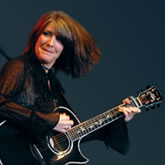 |
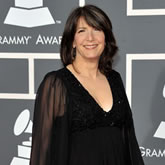 |
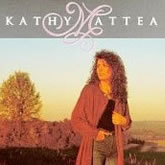 |
3 -AMCU - A diferencia de muchos otros artistas en la Música Country, usted ha grabado sólo dúos con Tim O'Brien y Michael McDonald. ¿Con quién más le gustaría grabar a dúo?
Kathy Mattea -Oh, saben, James Taylor, Bruce Springsteen, Brad Paisley, Alison Krauss. Esos serían, todos esos, dúos de ensueño.
4 - AMCU - Leímos que usted estaba un poco renuente a grabar "Burnin' Old Memories", la cual, al fin, se convirtió en uno de sus más grandes éxitos.
Kathy Mattea -No recuerdo estar renuente. Recuerdo que había muchas canciones con esa metáfora en esa época, y Allen Reynolds hablaba sobre eso en una entrevista...eso debe ser lo que Ud. piensa.
Pienso que mucho de la magia del éxito de esa canción es en la interpretación. Fue una sola toma del principio al final, sin sobregrabaciones. Y eso que Ray Flacke toca es simplemente maravilloso. También me gusta el espacio en esta canción, no es demasiada producida, ni muy simple. Se siente que todos nos estábamos divirtiéndonos.
5 - AMCU - Desde 1983 cuando por primera vez apareció en los ránkings hasta 1986, sus éxitos no llegaban a posiciones muy altas, sin embargo, "Love at the Five & Dime" fue derecho al tope. ¿Qué hubo de especial en esta canción?
Kathy Mattea -Bueno, si supiera eso, sería mucho más rica hoy! Mirando al pasado, pienso en la simpleza de la canción, los estribillos son fáciles de cantar, y también el mensaje sobre un gran amor a lo largo de un período largo de tiempo, que sobrevive altibajos. Creo que todos desean eso en lo más profundo de su ser.
6 - AMCU - Ganar un premio de la Country Music Asociacion por Vocalista del Año es algo que cualquier cantante sueña lograr, sin embargo Ud. ganó este premio dos veces seguidas. ¿Alguna vez soño que lograría eso en sus días como guía?
Kathy Mattea - Recuerdo ver los programas de entregas de premios y llorar cuando escuchaba los discurso de aceptación de los cantantes. Pienso que tenía el sueño, pero no me atrevía a ponerlo en palabras o a contarle a nadie, por miedo de que pudiera exponer alguna parte muy vulnerable de mí.
7 - AMCU - A propósito, ¿alguna vez ha donado usted algunas de sus pertenencias al Salón de la Fama y Museo de la Música Country?
Kathy Mattea - Hay un hermoso vestido que usé la primera vez que fui Vocalista Femenina elegida por la Country Music Association. Es una obra de arte, hecha por mi amiga Nancy Cooley, un vestido de terciopelo negro que llega hasta el piso y todo bordado. Lleva una chaqueta con perlas. Es maravilloso y realmente pertenece a un museo. También les dí un adorno de navidad, mi identificación original de guía.
8 - AMCU - Una vez Kenny Rogers dijo que su éxito “Every Time Two Fools Collide” lo había llevado a alturas vocales a las que nunca había llegado antes. Usted tiene una voz muy suave y cálida: ¿elige las canciones basadas en su voz, o elige una canción y luego expande y explora sus posibilidades vocales?
Kathy Mattea -Mayormente lo último. A veces uno encuentra una canción y no sienta bien para una voz en particular, sin importar cuánto uno trata de buscarle la vuelta. Y a veces hay una canción que de alguna manera, magnifica cualquier calidad mágica que uno tenga en la voz. Pero mi experiencia me dice que eso es imposible de adivinar.
Este último album mío, "Coal", fue un desafío. Estuve un poco sorprendida, porque las canciones son muy simples. Pero tuve que realmente trabajar para evitar cantar en exceso. Sentí que estaba quitando una capa entre las canciones y yo, y traté de conectarme con ellas en una manera más directa. Era como salir del camino, no pensar mucho en ello y sólo dejar que la canción brotara de mí.
9 - AMCU - Tenemos entendido que usted ha hecho giras con artistas tan distintos como Bobby Goldsboro o los Oak Ridge Boys. ¿Es difícil para un artista estar de gira con otros artistas tan distintos estilísticamente?
Kathy Mattea -A veces los públicos tienen gustos diferentes, y eso puede ser duro. Pero es raro. Yo siempre lo veo como una oportunidad de ganarme nueva gente, ya sea si abro el show o lo cierro. Y es divertido aparecer frente a un público que quizás tenga una idea preconcebida de uno, o gente que no conocen tus canciones, y cantarlas de manera fresca para ellos. Aún amo hacer eso.
 |
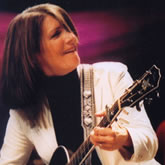 |
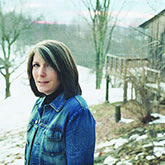 |
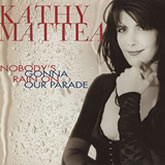 |
10 - AMCU - Muchoas estrellas llamadas hoy en día "Clase del '89" “(Marty Stuart, Travis Tritt, Clint Black, Dwight Yoakam, Mary Chapin Carpenter y usted, entre otros) son considerados ahora "Country Alternativo" o "Americana" y ya no aparecen en las posiciones altas de los rankings country de Billboard. ¿Ha cambiado la Música Country o ha cambiado su música?
Kathy Mattea -Creo que Sí, y No. La música country y los negocios están en general más consolidados, más "corporatizados". Más ondas de radio están siendo gobernadas por menos gente. Lo mismo con los grandes sellos discográficos.
Pero la mismo tiempo, se ha abierto nuevas salidas alternativas para la música. Mi reciente album ha sido mencionado en muchos blogs de música, y eso me abrió a un nuevo público que no estaba familiarizado con mi material. Y hay un muy rico surgimiento de sellos discográficos independientes y artistas que están haciendo mucho dinero vendiendo muchos menos discos que lo que solían hacer. Es sólo un modelo distinto de negocio, así que todo fluye en este momento.
Es un gran momento para el florecimiento de la creatividad, artística y comercialmente.
Y en lo que respecta a mi música, he completado un círculo volviendo a mis raíces de folk y bluegrass, pero lo siento como una progresión, eso ha llegado un sentido natural de curiosidad y exploración. Así que supongo que ha cambiado, pero no lo veo de manera drástica, más como una profundización de mi sendero original.
11 - AMCU - En un mercado donde lo joven, los llamativos videoclips y sonidos pop-country pegadizos dominan, un album como “Coal” fue un gran riesgo comercial. Su productor, Marty Stuart, es también conocido por tomar ese tipo de riesgos. ¿Él fue el productor "natural" para este album o tuvo usted que convencerlo para comenzar esta aventura?
Kathy Mattea - Bien, según recuerdo, envié la invitación a través de un amigo/colega mutuo, y el "sí" llegó muy poco después. Yo estaba contentísima. Marty sabe muy bien cómo medir lo que no sirve, y su apoyo y deseo de poner su nombre junto al mío (sin mencionar sus fluidos creativos!) fue un enorme estímulo para mí. Él conoce esta música como la palma de su mano, y yo supe que podía confiar en que me diría qué funcionaba y qué no. Y trabajar con él fue muy fácil.
12 -
AMCU - Sus comienzos fueron en bluegrass en West Virginia
y ahora ha incluido canciones con tintes de bluegrass en su album "Coal".
¿Está usted cerrando un ciclo, volviendo a sus raíces,
como otros artistas han hecho, por ejemplo, Ricky Skaggs?
Kathy Mattea -Así lo creo. Pero no ha sido intencional. En cierto momento, supe que este era el próximo album que yo "se suponía" que hiciera (de acuerdo a ese barómetro en mi interior!), y así lo hice. Nunca pensé mucho más allá de eso.
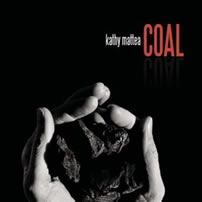 13
- AMCU - La Música Country se ha inspirado en tragedia:
penas, divorcio, adicciones. Sin embargo, un desastre minero originó
"Coal".
¿Puede explicarnos esto?
13
- AMCU - La Música Country se ha inspirado en tragedia:
penas, divorcio, adicciones. Sin embargo, un desastre minero originó
"Coal".
¿Puede explicarnos esto?
Kathy Mattea -En enero del 2006, en donde vivo en West Virginia, 13 mineros quedaron atrapados por varios días. Nadie sabía si estaban vivos o muertos. Era un juego de esperar, y en un momento, llegó el reporte de que estaban aún vivos. Resultó no ser cierto. Todos menos uno perecieron. Fue horrible. Yo estaba absorta por la historia y me encontré llorando frente a la computadora cuando se conocieron las noticias. Decidí que hacer un album de canciones sobre mineros sería un buen modo de procesar el dolor y convertirlo en algo positivo. Esa fue la semilla del proyecto, el comienzo.
14 - AMCU - ¿Podría darnos algunos conceptos sobre los siguientes artistas?
Kathy Mattea
-Jon Vezner -
Bueno, es mi marido, así que es eso! Es un valiente compositor, y un
gran ejemplo de alguien que busca escribir desde lo profundo, desde adentro.
Nancy Griffith -
Tiene una hermosa habilidad para mantener todo simple, y al mismo tiempo encontrar
poesía en la vida cotidiana.
Marty Stuart - Un genio.
Una persona de una fuerza creativa, ambiciosa. Un alma hermosa.
15 - AMCU - ¿Sabía usted que el Día Internacional de la Música Country -17 de Septiembre, cumpleaños de Hank Williams- tuvo origen en España?
Kathy Mattea - No, no lo sabía. Me encantaría conocer España algún día. Colaboré hace algunos años con un grupo de Galicia llamado Milladoiro, y era hermoso. Mi viejo guitarrista y gurú musical, Bill Cooley, hizo un viaje a allí recientemente y vino enloquecido con lo fantástico que fue.
16 - AMCU - ¿Hay algo que quisiera agregar?
Kathy Mattea -No se me ocurre nada en este momento...
17 - AMCU - ¡Muchas gracias!
Kathy Mattea -Muchas gracias a ustedes por tan meditadas preguntas. Espero poder conocerlos a ambos algún día.
Preguntas a cargo de Raul Tejeiro
Links
Kathy
Mattea - sitio web
Letras
de canciones (lyrics)
Videos
en YouTube
Amazon.com
Kathy
Mattea - Wikipedia
An interview with Kathy Mattea.
1 - AMCU - Did you get to see any of your idols when you were working as a guide in the Country Music Hall of Fame? Did you get any advice at that time?
Kathy Mattea - Well, I gave Ralph Emery a VIP tour one time. That was intimidating, because I knew that he knew more about those people and all that stuff than I did! All the other tour guides were scared to give him the tour, but I thought “What the heck!” He was great. And I got to tell him that story years later.
My other big recollection is when they were making “Coal Miner’s Daughter,” the Oscar-winning movie about Loretta Lynn, and Beverly D’Angelo came through doing research to play Patsy Cline. That was an exciting day. I had gone downtown to be an extra in the audience for the big concert scene, so it was a really fun time
2 - AMCU - You have always stretched the boundaries of your music, including folk, Scottish and classical elements, obviously drawing inspiration from many sources. What other musical styles do you enjoy listening to, apart from country-oriented material?
Kathy Mattea - I can usually find something in every genre to like. I currently have on my ipod everything from old Rolling Stones to Diana Krall, some Scottish stuff in Gaelic, some blues. It’s really more about connection for me. I don’t have much hip-hop, but I remember hearing the Blackeyed Peas sing “Where is the Love” on the Grammys a few years ago, and just went out and downloaded it immediately.
3 - AMCU - Unlike many other stars in Country Music, you have only recorded duets with Tim O’Brien and Michael McDonald. Who else would you like to cut a duet with?
Kathy Mattea - Oh, you know, James Taylor, Bruce Springsteen. Brad Paisley, Alison Krauss. Those would, all of them, be dream duets.
4 - AMCU - We read that you were a bit reluctant to cut “Burnin’ Old Memories” which, eventually, became one of your biggest hits.
Kathy Mattea - I don’t remember being reluctant. I remember a lot of songs coming through with that kind of metaphor at the time, and Allen Reynolds talking about that in an interview…that might be what you’re thinking of.
I do think a lot of the magic of that record’s success is in the performance. It was one take from front to back, no overdubs. And that stuff Ray Flacke is playing is just wonderful. I also like the space on this track, it’s not too produced-up, not too layered. You can feel that everyone was just having fun.
5 - AMCU - From 1983 when you first charted to 1986, your hits wouldn’t hit the upper charts, however, “Love at the Five & Dime” shot strait to the top. What was it special about this song?
Kathy Mattea - Well, if I knew that, I’d be a lot richer today! Looking back, I think there’s a simplicity to the song, a sing-along quality on the choruses, and also a message about a great love over a long period of time, that survives lots of ups and downs. I think everyone yearns for that somewhere in their deepest self.
6 - AMCU - Winning a CMA Vocalist of the Year award is something that any aspiring singer dreams of, however you have won this award and twice in a row. Did you ever dream that you would achieve this back in your tour guide days?
Kathy Mattea - I remember watching the awards shows and weeping at the acceptance speeches. I think I had that dream, but didn’t dare put it into words and tell anyone, for fear I would expose some very vulnerable part of me.
7 - AMCU - By the way, have you donated any of your items to the Country Music Hall of Fame and Museum?
Kathy Mattea - There’s a beautiful dress I was wearing the first time I was CMA Female Vocalist. It’s a work of art, made by my friend Nancy Cooley, a black velvet floor-length gown with embroidered doves on it. It has a matching jacket studded with pearls. It’s stunning, and really does belong in a museum.
I also gave them, made into a Christmas ornament, my original tourguide pin.
8 - AMCU - Once Kenny Rogers said that his hit “Every Time Two Fools Collide” had taken him to vocal heights he had never reached before. You have a very sweet and warm: do you choose your songs based on your voice, or do you choose a song and then stretch and explore your vocal possibilities?
Kathy Mattea - Mostly the latter. Sometimes you find a song and it just doesn’t sit well for your particular voice, no matter how hard you try to find your way into it. And sometimes there’s a song that sort of magnifies whatever magic quality you have in your voice. But my experience is that it’s impossible to suss that out on the front end.
This latest album of mine, “Coal,” was quite challenging. I was surprised a bit, because the songs are very simple. But I had to really work to keep from oversinging them. I felt like I was stripping away another layer between me and the songs, and trying to connect with them in a more direct way. It was like trying to step out of the way, not think about it too hard, and just let the song sing itself through me.
9 - AMCU - We understand that you have toured with artists as different as Bobby Goldsboro or the Oak Ridge Boys. Is it difficult for an artist to tour with artists who are so different in style?
Kathy Mattea - Sometimes your audiences have different tastes, and that can be tough. But that’s rare. I always look at it as a chance to win over some new people, whether I’m the opening act or the closing one. And it’s really fun to come out in front of people who might have a pre-conceived notion of you, or folks that might not know your stuff, and have a fresh run at them. I still love doing that.
10 - AMCU - Many stars called nowadays “The Class of ‘89” (Stuart, Travis Tritt, Clint Black, Dwight Yoakam, Mary Chapin Carpenter and yourself, among others) are now considered “Alternative Country” or “Americana” and no longer hit the top spot of the Billboard Country Charts. Has Country Music or your music changed?
Kathy Mattea - I think Yes, and No. Country music and the biz in general has gotten more consolidated, more “corporatized.” More airwaves are being controlled by fewer people. The same for the major labels.
But at the same time, there’s been this opening of alternative outlets for music. My current album got mentioned in lots of music blogs, and that opened me up to a new audience who was not familiar with my stuff. And there’s a very rich blossoming of independent labels and artists who are making a lot of money selling far fewer records than they used to. It’s just a different business model, so everything is in flux at the moment.
It’s a great time for creativity to flourish, artistically and business-wise.
As for my music, I’ve come full circle back to my bluegrass and folk roots, but it feels like a progression to me, that’s come from a natural sense of curiosity and exploration. So I guess it’s changed, but I don’t think of it as drastic, more of a deepening of my original path.
11 - AMCU - In a market where youth, flashy videclips and radio-friendly pop-country music rule, an album like “Coal” was a big commercial risk. Your producer, Marty Stuart, is also known for taking this kind of risks. Was he the “natural” producer for this album or did you have to convince him into the venture?
Kathy Mattea - Well, as I recall, I sent the invitation through a mutual friend/co-worker, and the “yes” came back very soon thereafter. I was thrilled. Marty has a very high BS meter, and his endorsement and willingness to put his name next to mine (not to mention his creative juice!) was a huge encouragement to me. He knows this music like the back of his hand, and I knew I could trust him to tell me what was working and what wasn’t working. And working with him was effortless.
12 - AMCU - Your beginnings were in bluegrass in West Virginia and now you have included bluegrassy songs on your album “Coal”. Are you closing a cycle, going back to your roots, like other artists have done, for example, Ricky Skaggs?
Kathy Mattea - I think so. But it hasn’t been intentional. I just knew at a certain point that this was the next record I was “supposed” to make (according to that barometer in my gut!), and so I did it. I didn’t really think about it much beyond that.
13 - AMCU - Country Music is known for drawing inspiration from tragedy: heartbreak, divorce, addictions. However, a coal mining disaster triggered “Coal”. Can you explain this?
Kathy Mattea - In January 2006, in my home state of WV, 13 miners were trapped for several days. No one knew if they were alive or dead. It was a waiting game, and at one point the report came back that they were all still alive. It turned out not to be true. All but one perished. It was awful. I was riveted to the story, and found myself weeping at my computer when the reports came out. I decided that an album of mining songs might be a good way to process that grief and turn it into something positive.That was the seed for the project, the beginning.
14. - AMCU - Could you give us a few words on the following artists?
Kathy
Mattea - Jon
Vezner—Well, he’s my husband, so there’s that! He’s
a brave songwriter, and a great example of someone who is driven to write from
a deep place, from his toenails.
Nancy Griffith—She
has a lovely ability to keep things very simple, and at the same time find the
poetry in everyday life.
Marty Stuart—A
genius. A driven, creative force of a person. A lovely soul.
15 - AMCU - Did you know that the Internacional Country Music Day -September 17th, Hank Williams’ birthday- was originated in Spain?
Kathy Mattea - No, I didn’t. I would love to visit Spain sometime. I collaborated a few years back with a group from Galicia called Milladoiro, they were lovely. My longtime guitarist and musical Guru, Bill Cooley, made a trip there recently and came back raving about how wonderful it was.
16 - AMCU - Is there anything you would like to add?
Kathy Mattea - I can’t think of anything at the moment….
17 - AMCU - Thank you very much!!
Kathy Mattea - Thank you for such thoughtful questions. I hope to meet you both someday.
Questions by Raul Tejeiro and Julio Cavallaro, President and Vicepresident of the Country Music Association of Uruguay (Asociacion de Música Country de Uruguay – A.M.C.U.)